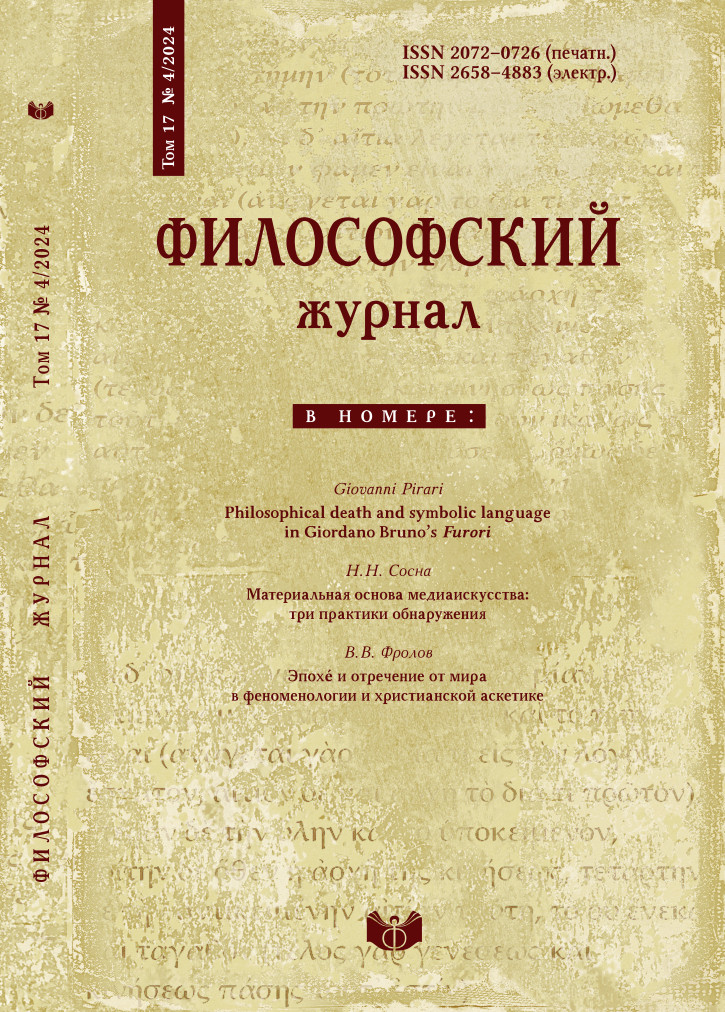Orientation and motivational determinants of social consciousness
DOI:
https://doi.org/10.21146/2072-0726-2024-17-4-5-22Keywords:
man, society, thinking, consciousness, cognition, motivation, truth, values, free will, needs, interestsAbstract
The article considers knowledge and values as invariants of ancestral human consciousness related to its orientational and motivational role in human activity. The task of orientational consciousness is the cognition of the surrounding and encompassing world (the existence of which is postulated as an axiom, doubt in which makes the existence of people de facto impossible). Cognition seeks its own logic of being of the perceived world and gives us verifiable knowledge about it, different from ignorance and delusion. The motivational function of consciousness involves the examination of possible reactions to alternative-free urges of a person in order to choose the best of the behavioural options. The author considers three levels of motivational expertise – emotional, reasoning, and obligatory – which guide people who are forced to choose between the imperatives of pleasant, useful, and due. Due motives form people’s value consciousness – a systemic set of strategic preferences associated with the choice of priority ultimate goals of life and, further, the needs funded by them. The author associates the ultimate goals of life with genetically given existential urges to preserve the fact and acceptable quality of life. Need is considered as an objective-real property of a social subject to feel the need for what is necessary to achieve the ultimate goals of life. Existential drives and needs cannot be ‘cancelled’ by human will, which does not prevent it from interfering in the process of their realisation, making possible existential choice between being and non-being, as well as value ranking of needs. The article considers the determinative connection between historically unchangeable, species-specific needs of people and their basic values, which have a universal character. The author connects differences in the value consciousness of people belonging to different societies and cultures not with the set of basic values, but with subordination links between them, which form different value priorities. The author insists on the fundamental difference between knowledge and values, which is associated with different attitudes to the institution of truth, non-verifiability of human value preferences, oriented towards the world of the due, not the real.






